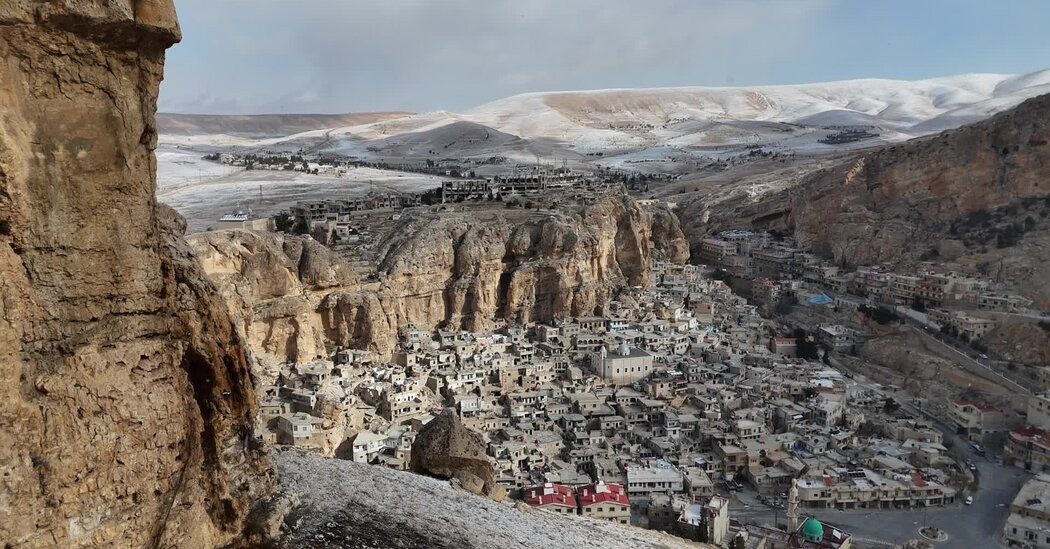

Inside a centuries-old monastery atop a mountain in western Syria, a priest swung an incense holder on a chain, led his flock in melodic chants and delivered a timeless sermon on the importance of loving one’s neighbor.
But when the congregation gathered for coffee after the service, their current worries surfaced, about how peaceful Syria’s future would be.
Would the Islamist rebels who ousted the strongman Bashar al-Assad in December ban pork and alcohol, impose modest dress on women or limit Christian worship? Would the new security forces protect Christians from attacks by Muslim extremists?
“Nothing has happened that makes you feel that things are better,” said Mirna Haddad, one of the churchgoers.
Elsewhere in the historic town of Maaloula, its Muslim minority had different concerns. Like their Christian neighbors, they had fled their homes here early in Syria’s 13-year civil war. But unlike the Christians, they had been barred from returning by the Assad regime and a Christian militia it supported.
“The problem is the majority,” meaning the town’s Christians, said Omar Ibrahim Omar, the leader of a new local security committee. He had come home to Maaloula only after Mr. al-Assad’s fall, after being kept out for more than a decade.